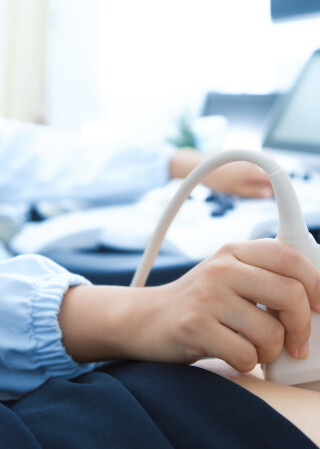A couple has been granted an extension of time to sue an ultrasound clinic in negligence following the birth of their daughter, born with Down’s syndrome, with the Supreme Court of Queensland finding the material fact was not known to the couple until they received expert opinion after the expiration of the limitation period.
Background
In 2014, Ms Katia Stephens became pregnant with her first child. Ms Stephens, together with her partner, attended Paradise Ultrasound Specialists Pty Ltd (the clinic) to have an ultrasound to determine whether the embryo was affected by chromosomal abnormalities. At the conclusion of the ultrasound, the sonographer told Ms Stephens that the final risk number was in the low range. The sonographer said there was a blood test available but that, because the ultrasound was in the low risk range, there was no need to take that test. The ultrasound images were reviewed by a radiologist Dr Hashaylaya Naidoo, who reported that “in summary, the overall risk assessment shows low risk of chromosomal abnormality”. However, they were not advised that there were other procedures available in order to test for chromosomal abnormalities, including a non-invasive prenatal test (NIPT) and an amniocentesis.
Their daughter, Lily Stephens, was born in February 2015 with Down’s syndrome.
Court proceedings
Ms and Mr Stephens commenced proceedings in the Supreme Court of Queensland against the clinic and Dr Naidoo, in negligence and claimed damages for wrongful birth and for personal injury sustained by Ms Stephens in respect of the birth. The law imposed a three-year time limitation on the bringing of actions. Ms and Mr Stephens argued that their claims were not subject to that limitation period.
His Honour Crow J noted that the case of Ms and Mr Stephens was that, had the negligent acts not occurred, there would have been a termination in or about September 2014, which represented the commencement of the time limitation in respect of her cause of action. The claims were claims that included damages in respect of personal injury to any person and on that basis fell within the time limitation period of three years. For that time limitation to be extended, it had to be shown that the “material fact” which allowed Ms and Mr Stephens to commence the proceedings was within their “means of knowledge” prior to the expiry of the limitation period. That material fact was conveyed by a specialist opinion that they did not receive until November 2017. An extension was appropriate.
Accordingly, the court upheld Ms and Mr Stephens’ claim and granted an extension of time.
This article first appeared in the CCH Australian Tort, Personal Injury, Health and Medical Law Tracker and is reproduced in full with permission from CCH, a division of Wolters Kluwer Australia: www.wolterskluwer.cch.com.au
The contents of this publication are for reference purposes only. This publication does not constitute legal advice and should not be relied upon as legal advice. Specific legal advice should always be sought separately before taking any action based on this publication.


